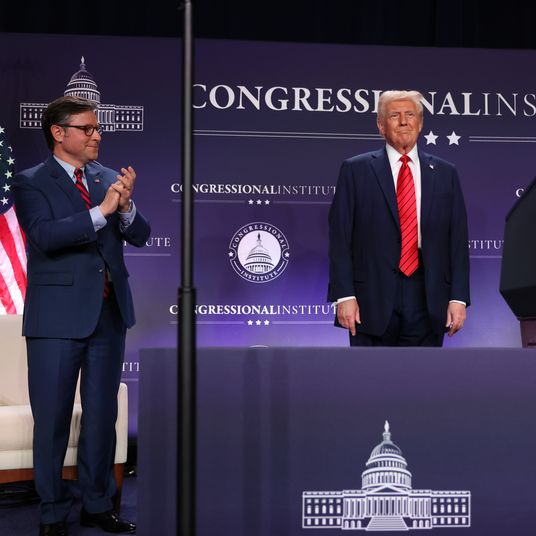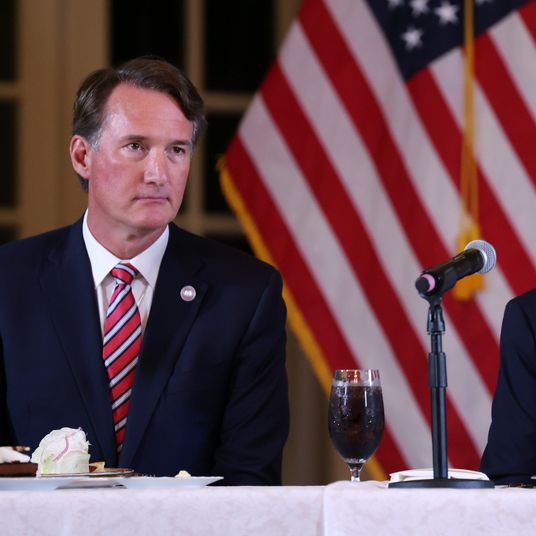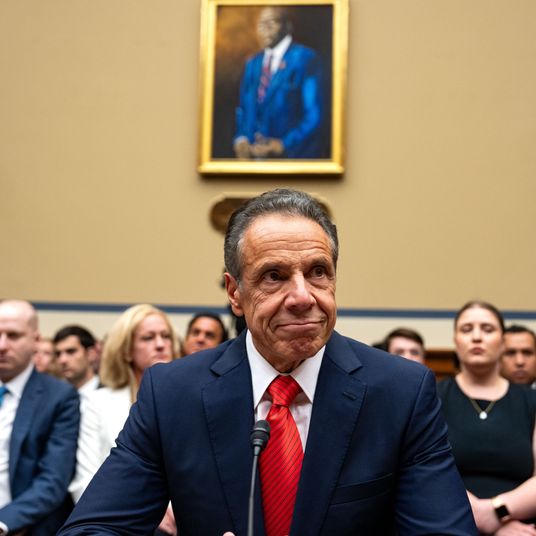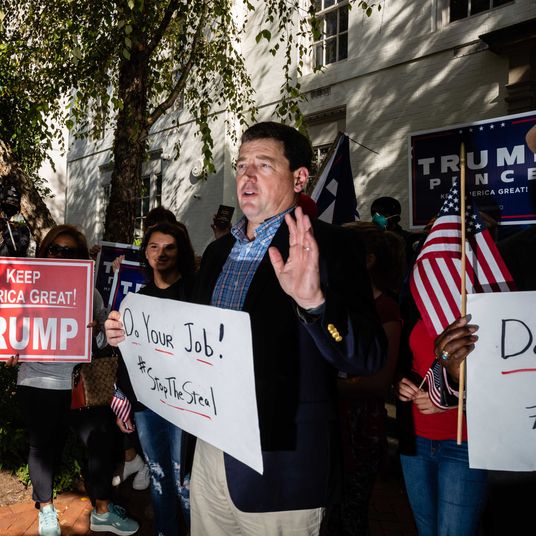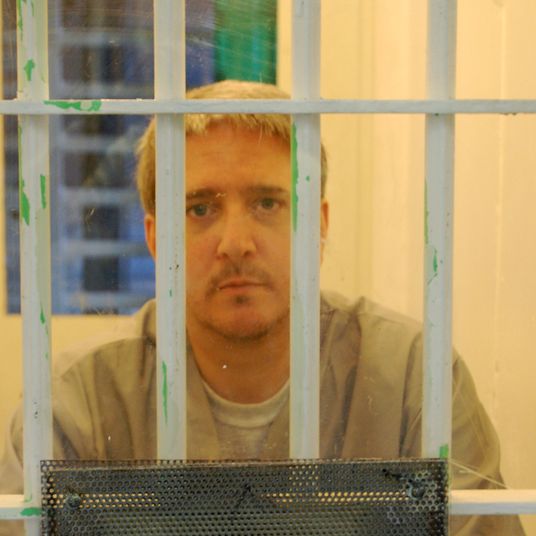At one point Monday, the front page of the New York Times had four stories covering the campus-antisemitism story. Another story (this one did not make the home page) reported from a pro-Palestine rally at Yale, where one protester briefly hung a Palestinian flag from a menorah before fellow protesters quickly had it removed. “The incident, captured on video in a public space near the Yale campus but not on it, lasted little more than a minute,” the Times reports.
We have reached a level of saturation coverage of campus antisemitism that is slightly hard to fathom. It feels like a strange form of cultural reversal in which the reporters who were staking out diners in Trump country have all been reassigned to the Ivy League beat. To be sure, Congress elevated the issue with hearings, and Representative Elise Stefanik staged a bit of demagogic theater, which legitimately seized the attention of (educated) readers. Because the issue has escaped into the conversation, its news value can attain a self-sustaining circularity: Everybody is talking about it because everybody is talking about it. (Guilty!)
This allows the critics of the university presidents to carp without stating clearly what exactly they object to and what exactly they propose.
For the main critics of the college presidents, who include many Democrats along with Republicans, the complaint is hypocrisy. The college presidents insist they can’t always ban slogans that sound threatening to Jews because of free-speech principles. “But that isn’t how these places work,” retorts Gerald Baker. “The Foundation for Individual Rights and Expression puts Harvard dead last in its ranking of colleges by climate of free speech.”
“It’s fundamentally about hypocrisy,” said Massachusetts Democratic representative Jake Auchincloss. “And, at least for me, what I reacted to viscerally from the testimony was particularly Harvard, which has an abysmal track record on championing and incubating free and open speech — now, [it’s] into the First Amendment, when it’s about antisemitism?”
The hypocrisy charge is fair enough. Elite universities have been deeply influenced by left-wing discourse norms that make it very easy to disqualify challenges to progressive thinking as bigotry. These norms are putatively designed to protect students from racism, sexism, and so on, but they are inherently prone to abuse. If you give activists engaged in political contestation the opportunity to silence their critics, some of them are going to seize it.
The inconsistency is that one set of rules is applied to Jews, and another to other minorities. The general rules campus progressives employ hold that if somebody feels offended by a claim, then it is presumptively suspect, intent doesn’t matter, and claims can be deemed racist or sexist if they are consistent with what a racist or sexist would say. (Racists hate affirmative action, so people criticizing affirmative action are under suspicion of racism.)
If you apply these rules to antisemitism, then you get a series of results that conservatives like and progressives hate. Yes, antisemites often couch their dislike of Jews inside criticism of Israel, so can we treat a piece of anti-Israel rhetoric as antisemitic if it is something an antisemite would say? If there is disagreement about whether a claim is antisemitic, do we need objective standards, or should we defer to the lived experience of the Jewish accuser?
Conservatives have spent years denouncing left-wing discourse norms while also demanding they be applied to Jews. The hypocrisy, as I’ve long argued, runs both ways. Conservatives routinely dismiss vast swaths of anti-Israel rhetoric as antisemitic if it merely makes Israel supporters feel discomfort, conceivably implies violence, or vaguely activates an antisemitic “trope.” For other minorities, it’s not bigotry unless they’ve seen a signed Klan membership card.
Pointing out hypocrisy by the other side doesn’t resolve the issue if you don’t bother to hold any consistent set of rules yourself.
National Review’s Noah Rothman complains, “The double standard is that Jews are not subject to the coddling that other ethnic and religious minorities on American campuses experience.” So should Jews be “coddled”? Should other minorities stop getting “coddled”? It can’t be both.
My view is that illiberal discourse norms don’t actually protect the minorities they purport to help, so applying them to Jews wouldn’t actually help Jewish students, either.
That doesn’t mean Jewish students don’t deserve protection from legitimate harassment. That harassment is absolutely happening. But conservatives have catastrophized the scale and impact. Niall Ferguson is comparing the position of Jews in the academy to the situation in Germany in the 1920s and 1930s. There was a plane flying over Harvard Square toting a banner saying “Harvard Hates Jews.” Multiple critics are insisting Jewish parents should not send their children to elite American universities because it’s not safe.
This reminds me also of the rhetoric progressives have used to justify speech restrictions in academia. The premise that campuses are so overrun with racism and sexual violence is necessary to permit the conclusion that only deeply illiberal restrictions can make them safe.
The reality is that campuses are generally some of the most safe and welcoming spaces in America. And while antisemitic episodes do occur, with more frequency since October 7, Jewish students are on the whole quite safe at American universities.
Republicans in Congress have reasons other than concern for the welfare of Jewish students to elevate the campus-antisemitism problem to the level of national crisis. Taking antisemitism seriously, including antisemitism on the left, does not require submitting to hysteria.









